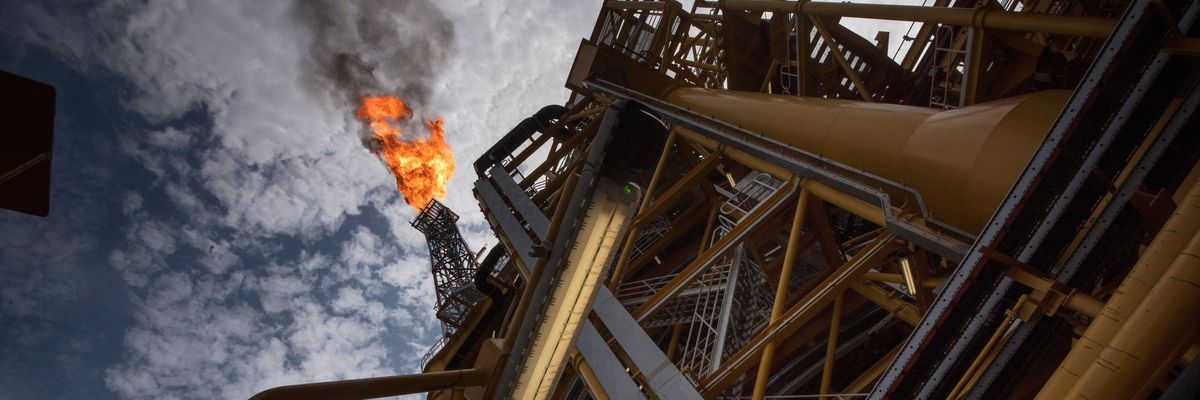An analysis released this week by the International Institute for Sustainable Development shows that G20 countries spent at least $1 trillion on fossil fuel subsidies in 2022, running afoul of recent pledges to curb financial support for the sector most responsible for the global climate emergency.
IISD's report estimates that G20 governments provided a record $1.4 trillion in support for fossil fuels last year, including subsidies and loans from public financial institutions.
"This support perpetuates the world's reliance on fossil fuels, paving the way for yet more energy crises due to market volatility and geopolitical security risks," researchers with IISD and other organizations wrote in a detailed analysis of the new findings.
"It also severely limits the possibilities of achieving climate objectives set by the Paris Agreement by incentivizing greenhouse gas (GHG) emissions while undermining the cost-competitiveness of clean energy," they added. "G20 governments need to shift their financial resources away from fossil fuels to instead provide targeted, sustainable support for social protection and the scaling-up of clean energy. Maintaining fossil fuel prices that reflect the cost these fuels impose on society will be necessary to reduce fossil fuel use."
The researchers noted that the surge in fossil fuel subsidies—which quadrupled in 2022 compared to the previous year—was "largely due to a dramatic expansion in consumer support in response to peaking fossil fuel prices."
"Helping households and businesses during an energy crisis is understandable and necessary, but there are better ways to do it than subsidizing fossil fuels, which keeps consumers locked into emissions-intensive, polluting, and price-volatile energy sources," the researchers wrote. "Shifting support from fuels to people is fundamental for the sustainable implementation of G20 governments' pledges to phase out fossil fuel subsidies."
G20 governments also provided financial support for fossil fuel production.
As the researchers explained, "these subsidies are problematic because they influence larger private investment flows, lock in higher fossil fuel production and emissions, and take up scarce fiscal resources that are needed to catalyze investments in clean energy transition solutions."
Global investment in renewable energy reached a record high last year, according to IISD, but it still amounted to just half the total worldwide investment in fossil fuels.
The analysis calls on G20 nations to establish a firm deadline for completely eliminating fossil fuel subsidies, which disproportionately benefit wealthy households that contribute far more to the climate crisis than lower-income households.
At the 2021 COP26 summit in Glasgow, 197 countries agreed to phase out "inefficient" fossil fuel subsidies—but they did not agree on a timeframe for action, nor did they clearly define "inefficient."
The IISD analysis notes that "more than half of the signatories with significant international financing have implemented their Glasgow commitment with integrity, including Canada, France, and the United Kingdom."
"However, several developed G20 countries have not yet delivered on implementation: Italy's policy is not aligned with the Glasgow statement, nor is Germany's draft policy, and the United States has not published its regulation," the analysis says. "These countries are among the most responsible for historical CO2 emissions and should take greater responsibility for preventing further emissions by shifting financing from fossil fuels to clean energy."




